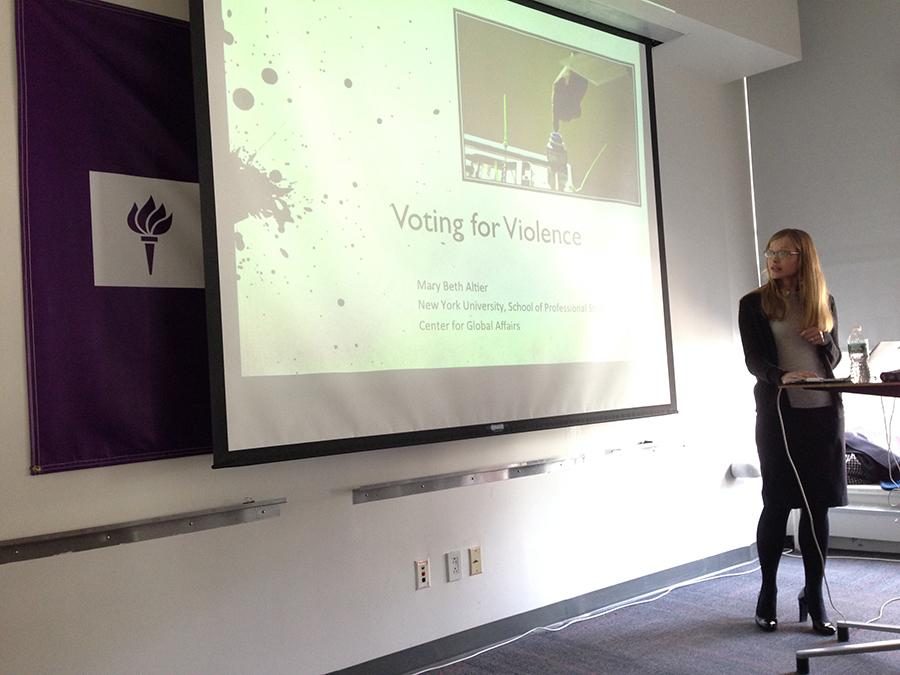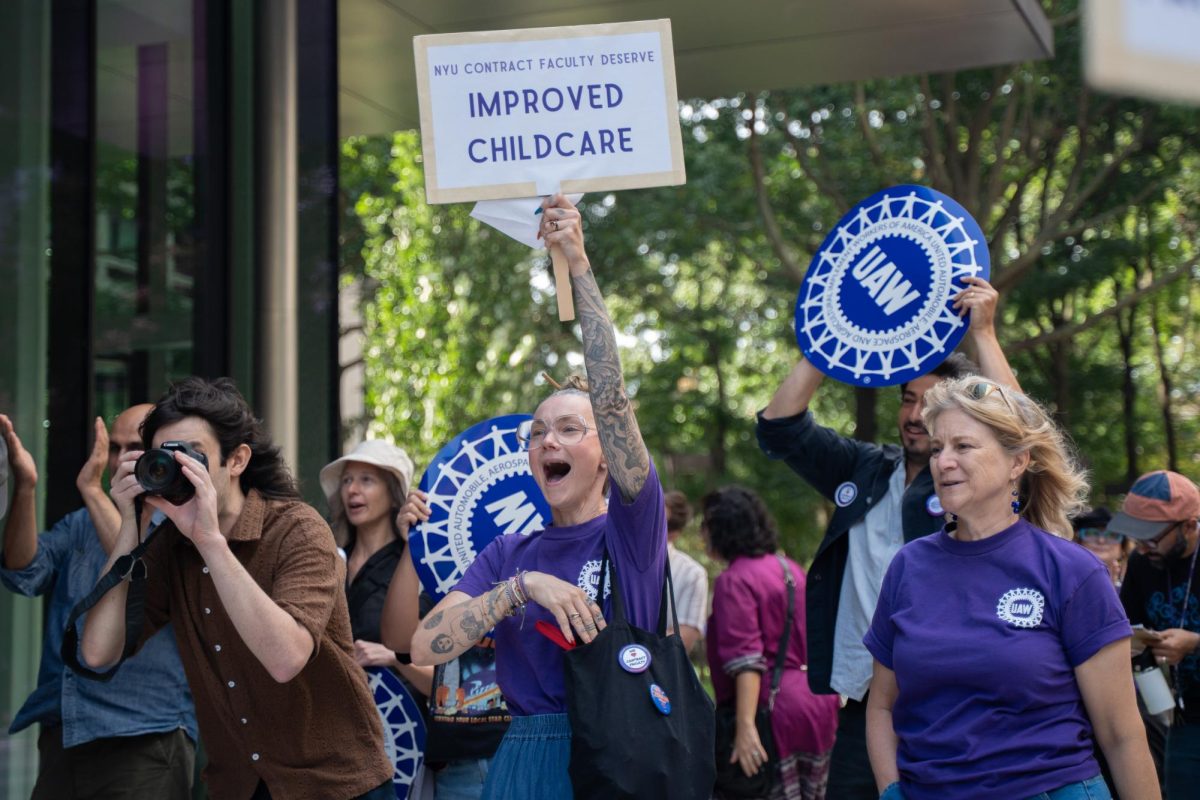Paramilitary discussion gets heated
In a presentation, Mary Beth Altier explores why people support paramilitaries during polls.
February 25, 2015
Mary Beth Altier, a visiting clinical assistant professor at the Center for Global Affairs, discussed the popularity of paramilitary organizations at an event hosted by NYU Law School on Tuesday. The event was part of the Center for Human Rights and Global Justice’s weekly Conflict, Security and Development series, which covers topics including the challenges of security and surveillance and warfare development.
Visiting clinical assistant professor at the Center for Global Affairs Mary Beth Altier explained her own reason for the rise in paramilitary groups. She said the more citizens lost trust in their government’s ability to protect them, the more they were willing to trust the dangerous control of paramilitaries.
“I think support for these groups actually stems from a security crisis,” Altier said. “A belief that the state is unable or unwilling to protect one from undue harm.”
Altier gave a presentation titled “Voting for Violence: Why Paramilitaries Fare Well at the Polls” in which she highlighted the 2005 Lebanese election when Shia voters supported parties allied with the militant group Hezbollah.
“Paramilitary parties even fare well against a backdrop of developed democracies,” Altier said. “This is problematic because paramilitary parties may subvert democracy through their use of force. And there are few incentives to abandon violence if constituents support its use.”
Altier studied cases of paramilitary presence across numerous communities, including Palestinian territories, Spain and Northern Ireland.
“Support for paramilitary were highest in communities that experienced high levels of state violence against civilians,” Altier said.
Altier added that, in these troubled regions, she found a severe lack of faith in government passed down from generation to generation.
“Promoting development and service provision may help on the margins,” Altier said. “But efforts to foster cross-communal contact are likely to have limited effects until the security crisis is resolved.”
After the presentation, attendee Charles Downs, an adjunct Wagner professor, brought up two points of contention.
“Maybe these different paramilitary parties actually stand for a political platform and people are voting for the platform or against an opposing platform, rather than for the use of arms, which seems to be the implication here,” Downs said.
Despite the controversial nature of the question-and-answer portion, GSAS student Roma Parhad said Altier’s research could potentially affect our relationship with other nations.
“I’m working on my thesis right now, so it was helpful to see the way she laid out her research question, her research design, and the way she went through the data,” Parhad said. “The topic I’m looking at is actually the relationship between ethnic minorities and the state in Iran, so it was helpful thinking about the topics she was talking about — violence and what the state can do.”
A version of this article appeared in the Wednesday, Feb. 25 print edition. Email Christine Wang at [email protected].






























































































































































